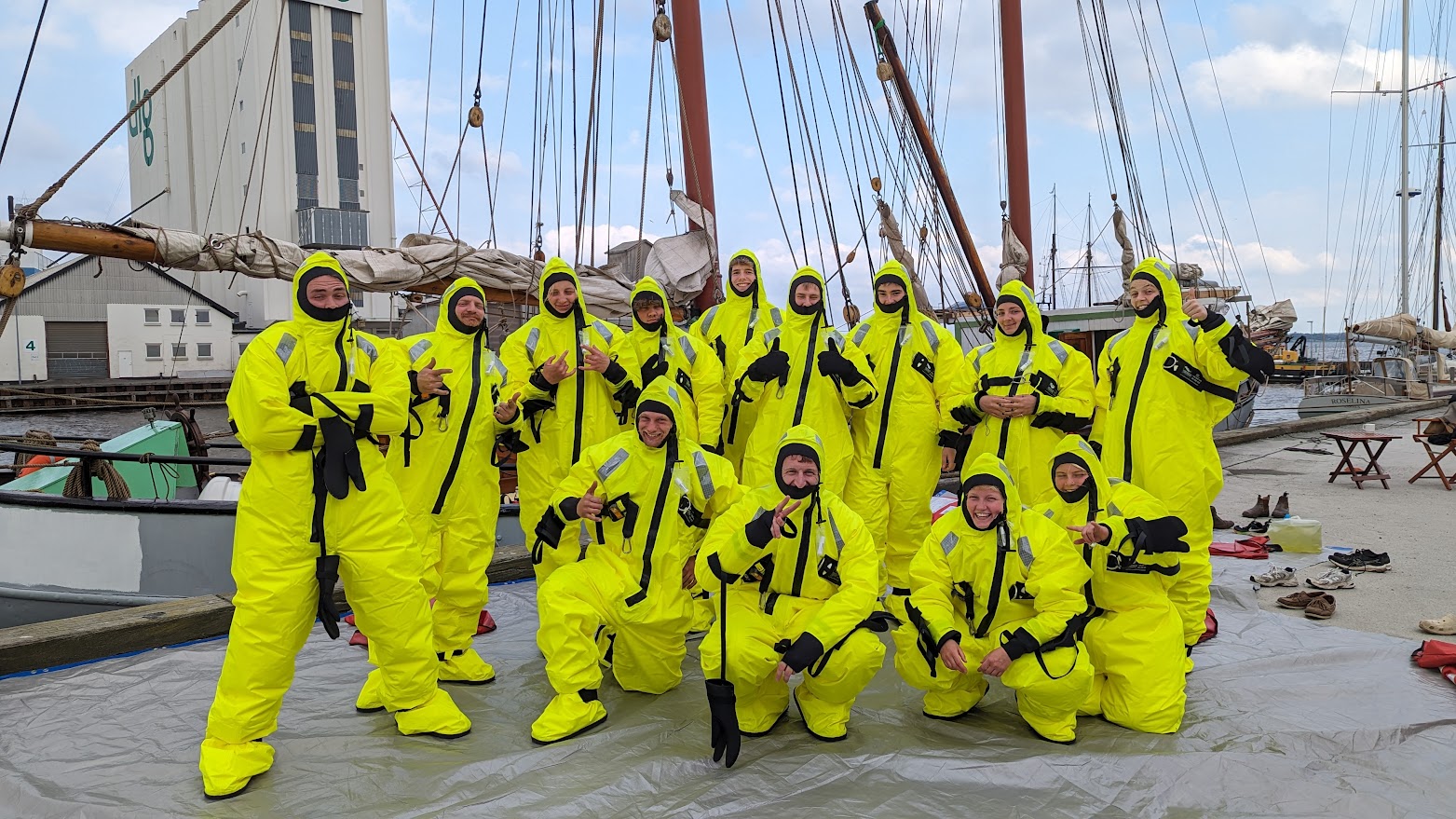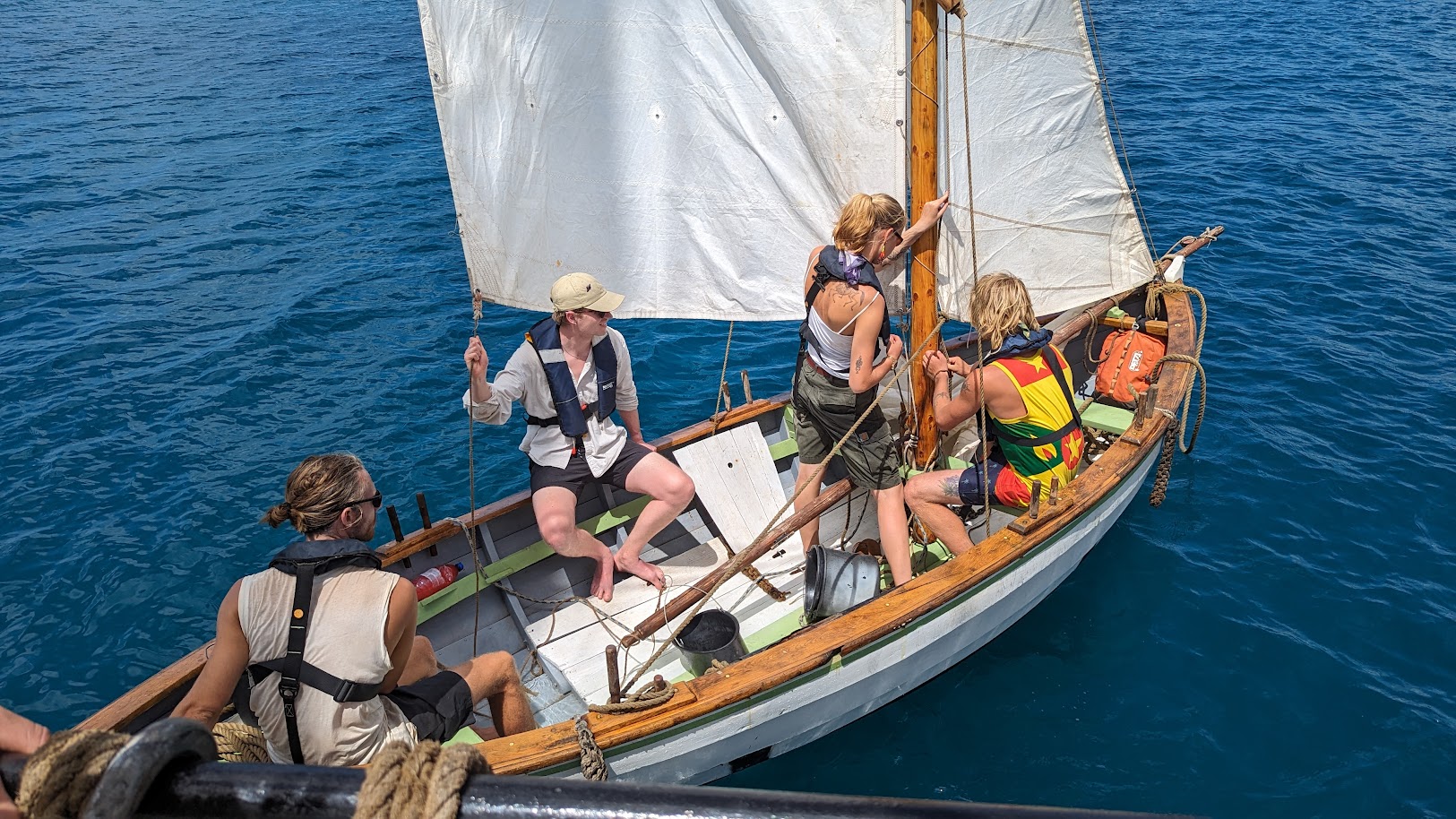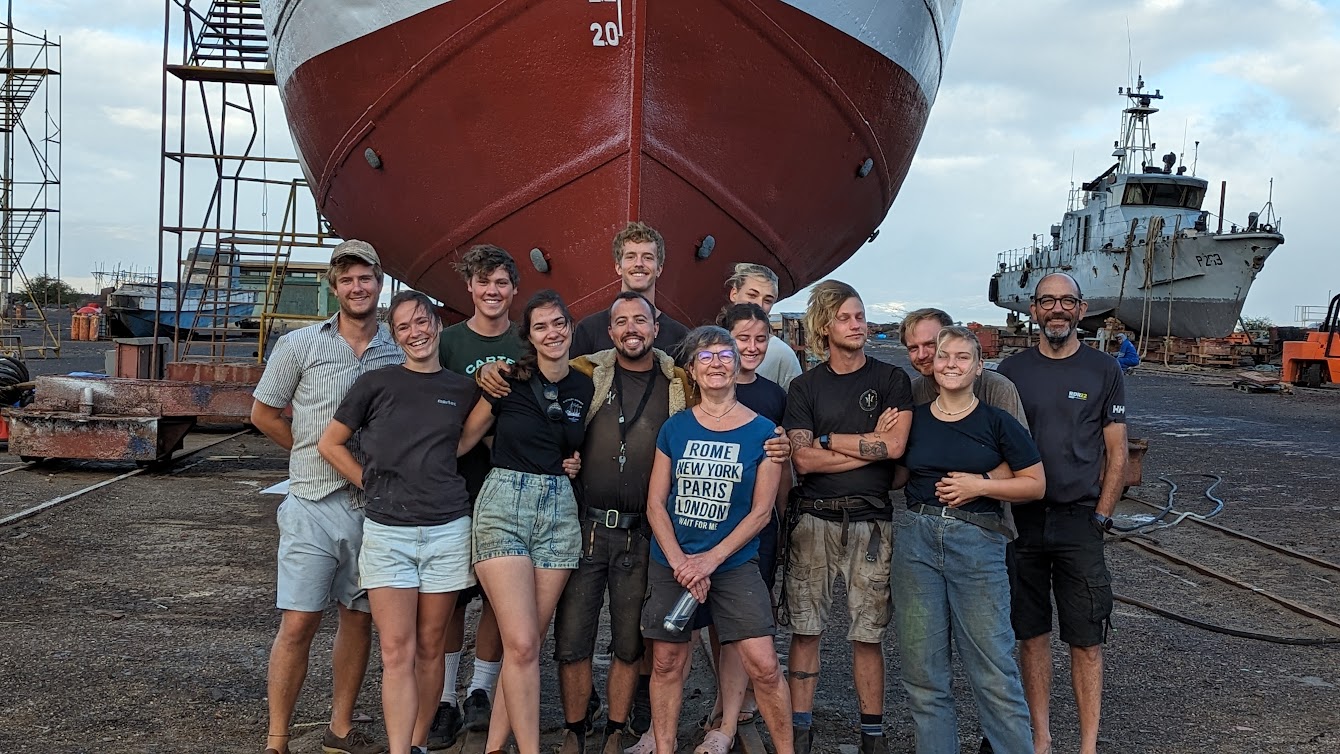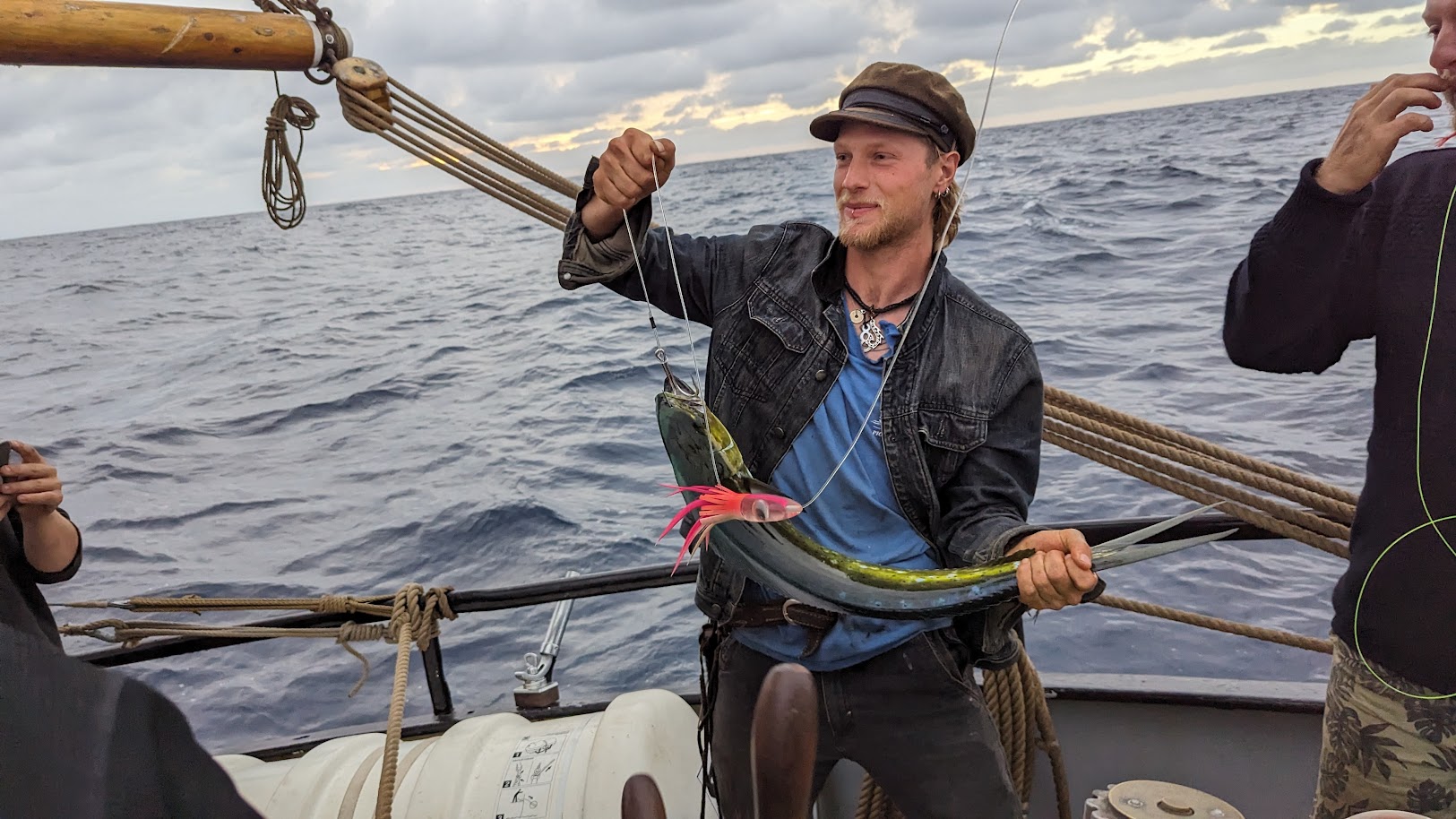 12 Feb, 2023
12 Feb, 2023
Crew on board
Being a crew on board SV NEPTUN offers a varied everyday life. There are 8 berths in the main salon, 3 berths in the forecastle and 2 berths in the skipper’s cabin.
The main salon is used as a living area below deck and where we eat, watch films and socialise when the weather is not suitable for being on deck.
In the forecastle is one of the ship’s heads (toilets) and the ship’s only shower. The forecastle also serves as storage for various gear, tools and other resources.
The captains quarters is where the captain sleeps and has a small limited office space.
The berths
Berth design is with a small entrance which allows you to pull a curtain and unplug. The bunks are furnished with modest shelf space, 240V, light and reading lamp.
Limited Resources
The ship is self-sufficient in fresh water and electricity - but in good seamanship, you must be mindful of the resources you use. It is important to have good resource management as there should always be an adequate supply of fresh water, electricity on the batteries and food in case of system failure.
Safety
Safety on board NEPTUN is first priority.
Before departure, it requires a full re-training on the ship’s safety equipment and procedures - all of which are heavily inspired by the Merchant Navy’s approach to safety.
It is a requirement of NEPTUN that all captains have at least sailed in a position responsible for navigation and safety in the merchant fleet.
In addition, we require at least 1 person on board to have the Maritime Administration’s medical officer training, with the medical officer course A (the best) often held by the skipper.
Safety equipment includes
- Life jackets for all on board, plus spare
- Lights for life jackets
- Lifebuoys
- Survival suits
- Fire extinguishers
- 2 redundant SOLAS approved rafts for 16 persons, with hydrostatic release
- VHF with DSC
- MF/HF with DSC
- SART
- EPIRB
- PLB
- Medical chest
- Defibrillator (AED)
Shared responsibilities and tasks
You don’t need to be an expert in traditional sailing when you muster - we’ll teach you!
The tasks to be performed when the ship is sailing, at anchor or alongside a quay are very different. It is important that you approach the task with an open mind and are ready to take on new challenges.
The permanent crew
The permanent crew consists of the captain, a first mate and sometimes an engineer. These are special roles on board which require special certificates and experience.
Captain
Onboard NEPTUN the master is referred to as the captain. This is the person who has overall responsibility for the entire operation of the ship and ultimately makes all decisions and is the ultimate authority on board.
It is also to the captain that you hand over all your personal documents including passports, certificates, health certificates, prescriptions for medication and the like. It is important that all documents are with the captain and also important that the captain has all the information as it is the captain who is ultimately held responsible for the operation of the ship. The captain is of course bound by confidentiality and will only use the documents and information provided to him for the operational management of the ship.
On de-commissioning all documents are returned and it is important to make a thorough check of what has been returned.
The Mate
This is the person who shares the watch with the captain and the next in command on board the ship. Thus, if the captain iis not present, it is the mate who has overall responsibility for the operation of the ship and the current authority. The mate follows the orders of the captain and is at his disposal. When the NEPTUN is sailing, the mate is also on watch with the captain. Thus, without exception, there must always be a navigator on watch when the ship is underway.
The Chief Engineer
The master is a person with papers from the merchant navy as master engineer and the person responsible for the technical operation of the ship and reports directly to the captain and if the captain is not present the mate. The cheif engineer organizes his work himself, but with particular regard to the operation, passage and sailing area of the ship.
Helmsman
The helmsman is the person at the helm who steers the ship according to the captain’s or mate’s course. When NEPTUN is sailing there is always a person at the helm, which is a protected position. It is a big responsibility and you have to watch out for other ships, wind and weather, and avoid all kinds of dangers.
Kitchen watch
Cooking is another task on board that also has to be done together. The kitchen watch rotates according to a specific schedule on board, but with the possibility of flexibility. As a guest, we do not expect you to be a professional cook, but we do expect you to have the courage to learn how to cook for the crew. The kitchen watch is as far as possible done by a team of two when we have enough crew for it.
Cleaning and tidying
Cleaning up is typically a shared task. Heads (toilets), bathrooms, cubicles, doorways, etc., must be cleaned at least once a day. It is a necessity for a good life on board. Similarly, bunks, clothing, mattresses and the like must also be washed and cleaned regularly.
Cleaning is a continuous thing and is an ongoing task. It is important to remember that you are on a ship that is moving and it is therefore important to lash down, put in place and otherwise
Process
Here is the process you will go through to become a crew and part of the community at NEPTUN:
- Read the website carefully!
- Join the association if you haven’t already! It is a requirement that all crew are members of the Neptune Association.
- Send an application - Apply.
- Upon receipt of the application, we will send out dates for an information session, either online or in person.
- If you get a place on your desired trip, you have 3 days to transfer the deposit.
- 3 months before embarkation: pay the crew fee.
- Pick up any items and spare parts that need to be transported to the ship, this will be done by separate arrangement.
This is the overall process of becoming a crew on board. After the information meeting you will receive a more in-depth list and guide.
It is up to the skipper to put together a good team, and to make everyone’s enlistments work for the ship and the program. In addition, longer stays (2-3 months) will be prioritized over shorter stays (1 month).
Have a nice trip!




